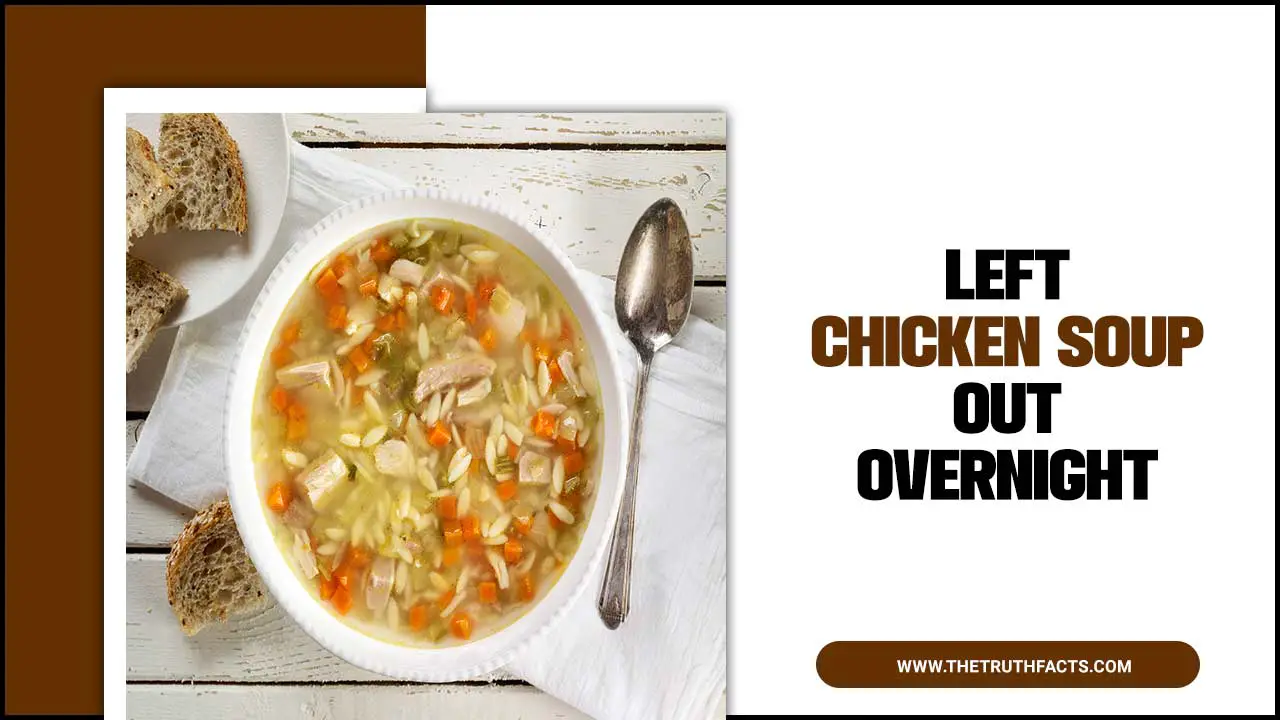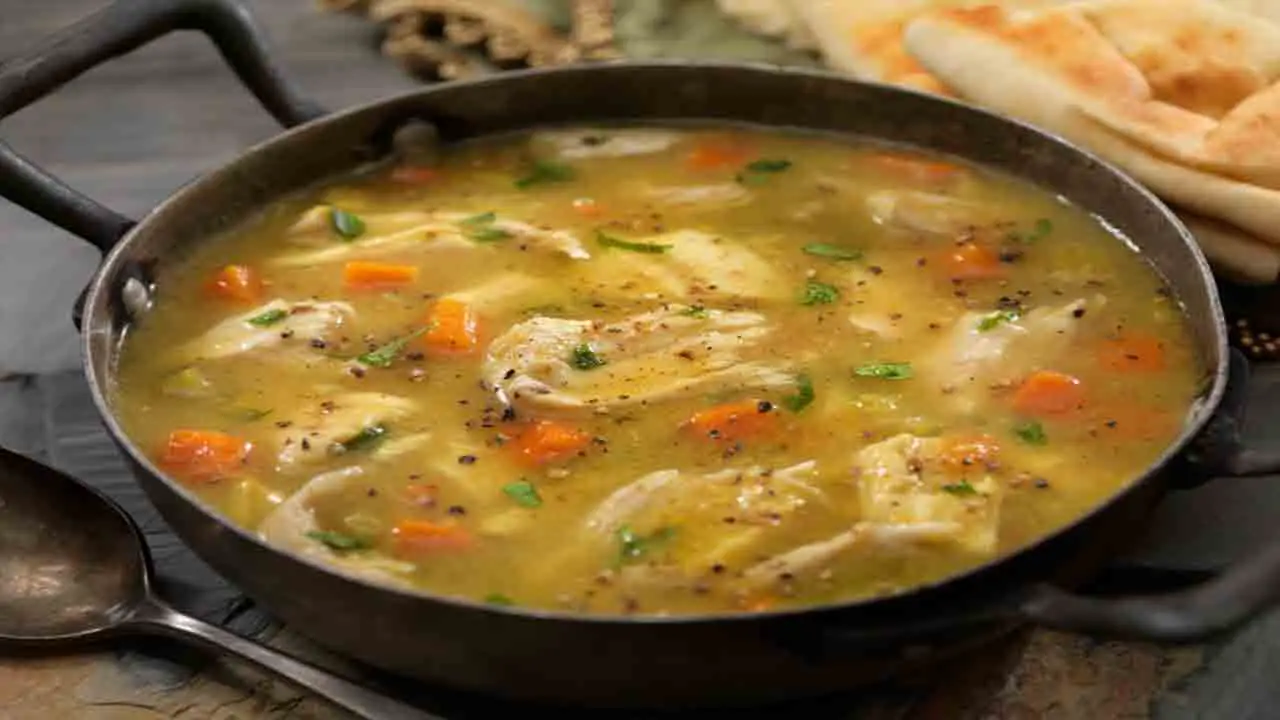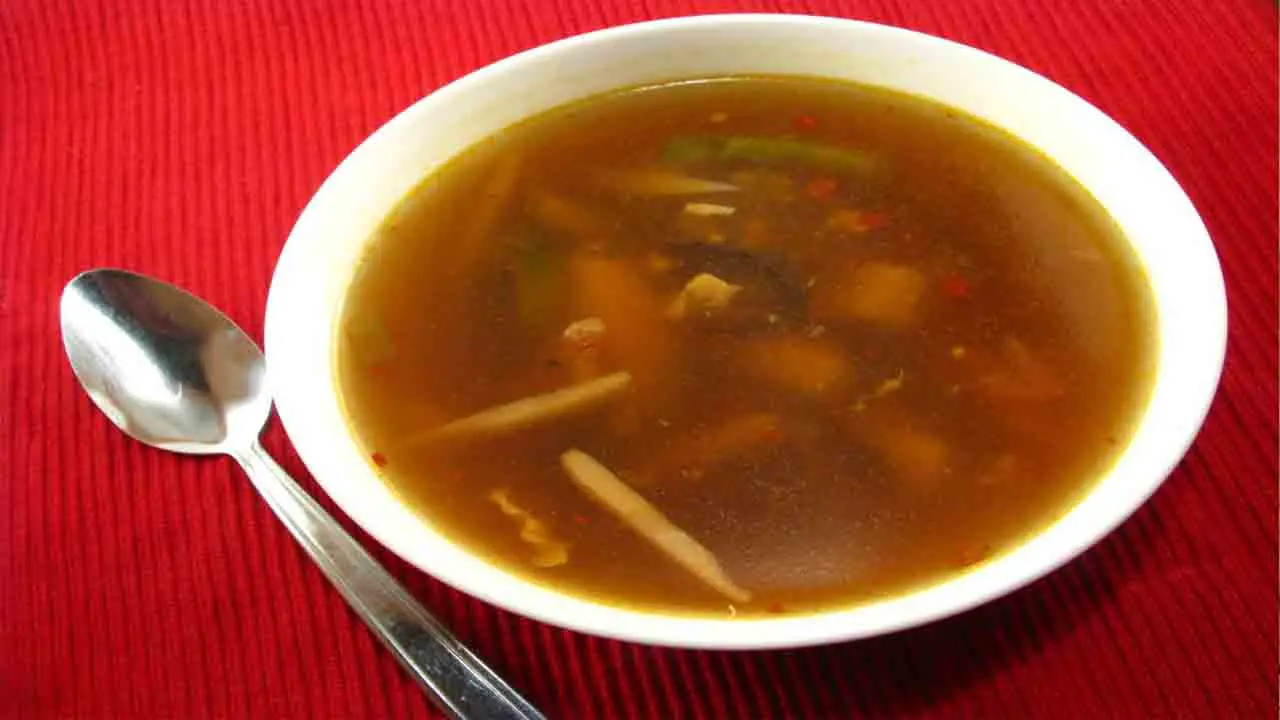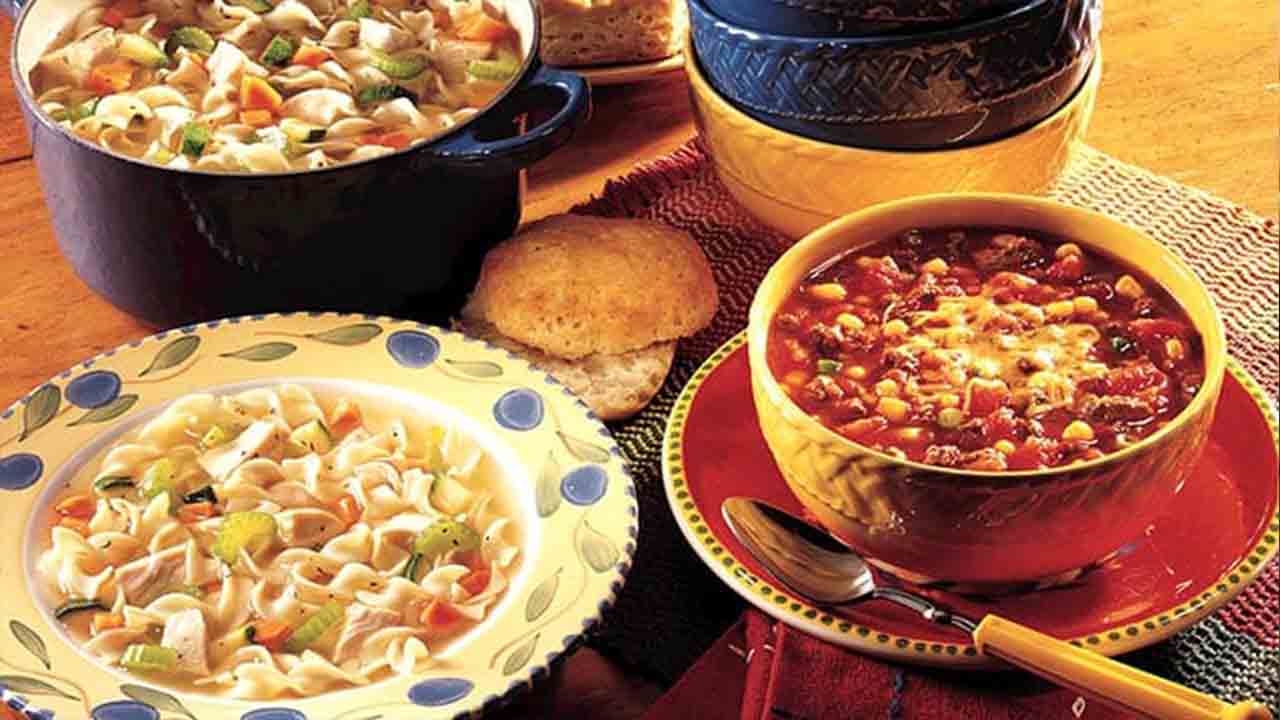When to food safety, certain rules should never be broken. One of these rules is to never leave food out at room temperature for more than two hours. Unfortunately, sometimes we forget and accidentally leave food out overnight, which can be especially concerning when it comes to perishable items like chicken soup.
You’ve likely found yourself in this situation and are wondering what to do next. You can take steps to properly store your left chicken soup out overnight and ensure that it’s safe to eat. We’ll review everything you need to know about storing chicken soup left out overnight. We’ll cover the potential risks of consuming spoiled soup and the best storage practices to prevent bacterial growth.

From Nutritious To Harmful Understanding The Dangers Of Left Chicken Soup Out Overnight Spoilage

The journey of food from nutritious to harmful can be a slippery slope. One of the most common examples of this is the spoilage of food, particularly when leaving chicken soup out overnight. While chicken soup is a hearty and nutritious meal, it can quickly become a breeding ground for harmful bacteria if left at room temperature for too long.
The danger lies in the fact that the bacteria can multiply alarmingly, making the soup unfit for consumption. This is especially true in warm weather, where the temperature can accelerate the spoilage rate. It’s crucial to understand the dangers of leaving chicken soup out overnight and to take measures to prevent spoilage.
This means ensuring you refrigerate the soup immediately or discard it if left out for more than two hours. It’s also essential to pay attention to the signs of spoilage, such as a sour smell or a change in color or texture.
How Long Is Too Long For Leaving Soup Out?
When leaving soup out, the general rule is not to let it sit at room temperature for more than two hours. This is because bacteria can start to grow in the soup after this time, which can lead to food poisoning if consumed. Note that this two-hour limit applies to the cooked soup that you leave out, not uncooked or raw ingredients.
If you are preparing soup from scratch, it is essential to keep all ingredients refrigerated until ready to be cooked. Transfer the cooked soup to airtight containers promptly and refrigerate it.
If you have leftover soup, it is best to reheat it thoroughly before consuming it to kill any bacteria that may have grown during storage. Additionally, if you are serving soup at a party or event, keeping it at a safe temperature by using a chafing dish or hot plate is essential.
Potential Health Risks Of Spoiled Soup

Leaving chicken soup out overnight can create an ideal environment for harmful bacteria to thrive. Consuming spoiled soup can result in food poisoning and gastrointestinal issues, as bacterial growth in the soup produces toxins that can harm your health. Common symptoms of consuming spoiled soup include nausea, vomiting, and diarrhoea.
Discard any soup left out at room temperature for more than 2 hours to avoid potential health risks. Following proper storage guidelines, such as refrigerating leftover soup within 2 hours and reheating it thoroughly, can reduce the chances of foodborne illnesses.
How To Tell If Soup Is Spoiled
Knowing how to tell if the soup is spoiled before consuming it is important. The first thing to check is the smell. If the soup smells sour or has an off odor, it’s likely spoiled. Next, check the appearance. If there are any signs of mold or discoloration, you should throw out the soup.
It’s also important to check the texture of the soup. If it has a slimy or gritty texture, it’s likely spoiled. Additionally, if the soup has been in the refrigerator for over a few days, it’s best to err on caution and discard it.
Consuming spoiled soup can lead to food poisoning and other health issues. Store soup properly in an airtight container in the refrigerator or freezer to prevent it from spoiling. If you’re unsure whether the soup is still good, it’s always best to play it safe and throw it out.
How To Safely Store Soup

People can enjoy soup, a comforting and delicious meal, any time of the year. However, it is important to store it safely to avoid any potential health risks. Firstly, always ensure the soup has cooled to room temperature before storing it.
Hot soup can cause condensation in the container, leading to bacterial growth. Once the soup has cooled, transfer it to an airtight container. Glass or plastic containers with tight-fitting lids are ideal for soup storage. Make sure the container is clean and dry before adding the soup. Please label the container with the date you made the soup and the type of soup.
You can track when it was made and how long it has been stored with this. Store the soup in the refrigerator and try to consume it within three to four days. Alternatively, you can freeze the soup for later use. Leave space at the top of the container for the soup to expand as it freezes.
How To Reduce Waste By Properly Storing Soup

Properly storing soup is crucial in reducing waste and ensuring food safety. If you plan to store soup for later consumption, you must ensure you do it safely to avoid potential food poisoning risks. Following these storage practices, you can reduce waste and enjoy your soup without worrying about food poisoning or spoilage bacteria.
- Leaving chicken soup out overnight can lead to the growth of harmful bacteria, putting you at risk of foodborne illnesses like salmonella.
- To prevent spoilage, it’s essential to refrigerate soup promptly after cooking.
- Opt for shallow containers when storing soup in the fridge, as they allow for quick and even cooling.
- Remember to consume leftover soup within 3-4 days of refrigeration to maintain its safety and quality. Alternatively, freezing soup in airtight containers can extend its shelf life for up to 3 months.
Identification And Prevention Of Left Chicken Soup Spoilage
Left chicken soup overnight can become a breeding ground for bacteria, leading to potential health risks. It’s important to identify signs of spoilage, such as a foul smell, unusual color or texture, and mold or visible bacteria. Experts recommend refrigerating leftover chicken soup within two hours of cooking to prevent spoilage and discarding any soup left out for longer.
Proper storage in airtight containers and reheating the soup to boiling temperatures can help kill bacteria and extend its shelf life. Always trust your sense of smell and throw away any chicken soup you suspect is spoiled to avoid foodborne illnesses.
Tips For Reheating Left Chicken Soup Safely

When reheating left chicken soup, it’s important to follow these tips to ensure safety. Reheat the soup on the stovetop or in the microwave until it reaches a temperature of 165°F, as this will kill any bacteria that may have grown. Avoid reheating the chicken soup multiple times, as this can increase the risk of bacterial growth.
Ensure you heat the soup evenly throughout to kill all bacteria. If you’re unsure about the safety of the soup, it’s best to discard it to prevent the risk of food poisoning. Remember to store leftover chicken soup in shallow containers in the fridge within 2 hours of cooking to minimize the risk of spoilage.
Conclusion
Following proper food safety practices is crucial when storing left chicken soup out overnight. Leaving soup out overnight can lead to bacterial growth and potential health risks. It is important to know the signs of spoiled soup and how to store it to reduce waste and ensure its freshness safely.
Properly storing soup in airtight containers in the refrigerator or freezer can extend its shelf life and prevent spoilage. When reheating leftover chicken soup, make sure to do so at the appropriate temperature to kill any bacteria. Always prioritize food safety and take all necessary precautions to prevent foodborne illnesses.
Frequently Asked Questions
1.Is Chicken Soup OK If Left Out Overnight?
Ans: It is not safe to consume chicken soup that has been left out overnight. Leaving soup at room temperature for more than 2 hours allows bacteria to grow, which can lead to food poisoning. To ensure food safety, refrigerate or freeze leftover chicken soup within 2 hours of cooking.
2.How Long Can Chicken Soup Be Left Unrefrigerated?
Ans: You should not leave the chicken soup unrefrigerated for more than 2 hours. Bacteria can quickly multiply in food left at room temperature. It is best to discard chicken soup left out for more than 2 hours to avoid the risk of foodborne illness. Promptly refrigerating leftover chicken soup is essential for safety.
3.How Long Can I Leave Chicken Soup On The Stove?
Ans: Leaving chicken soup on the stove for over 2 hours can increase the risk of bacterial growth and foodborne illnesses. To keep it warm for an extended period, use a slow cooker or transfer it to a thermos. Remember to refrigerate any leftover chicken soup within 2 hours of cooking.
4.Is It OK To Cook Chicken Soup Overnight?
Ans: They do not recommend cooking chicken soup overnight. Leaving it out can promote bacterial growth and increase the risk of foodborne illness. To ensure safety, refrigerate or freeze cooked chicken soup within two hours of cooking and reheat thoroughly before consuming.
5.How Can I Properly Store Chicken Soup To Prevent Spoilage And Bacterial Growth?
Ans: Properly storing chicken soup is crucial to prevent spoilage and bacterial growth. Cool it down quickly by using an ice bath or dividing it into smaller containers. Store the soup in airtight containers to keep bacteria out, and refrigerate below 40°F (4°C) to slow bacterial growth. Consume within 3-4 days or freeze for longer-term storage.
Meet Joseph Bryant, the creative force behind Foodsguider. As a self-taught chef and passionate food explorer, Joseph Bryant invites you to savor the journey through delightful recipes and the stories that accompany them. From kitchen adventures to the joy of sharing, join Foodsguider in celebrating the magic of good food and lasting memories.
